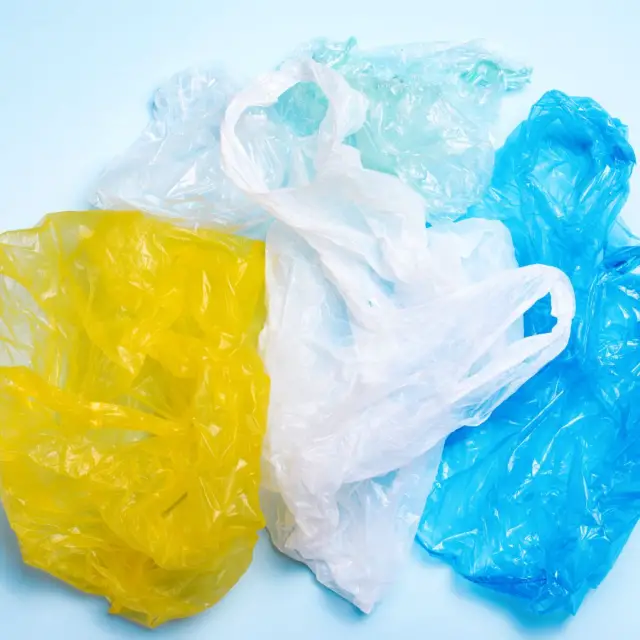In recent decades, the use of plastic has grown exponentially, becoming a pillar of modern life. Its versatility, low cost and durability have made it indispensable in many industries and in everyday life. However, these benefits have been accompanied by serious environmental consequences. Every year, millions of tons of plastic end up in oceans and landfills, affecting fauna, flora and contributing to climate change. Therefore, reducing the use of plastic is one of the most urgent actions to preserve our planet.
Knowing the Problem: The Impact of Plastic on the Environment
Before we talk about solutions, it is essential to understand the magnitude of the problem. According to recent studies, more than 40% of the plastic produced annually is used in disposable packaging, which often has an extremely short lifespan. However, plastic can take up to 500 years to decompose. Plastic does not biodegrade, but instead fragments into microplastics that contaminate water, soil and eventually reach the food chain, affecting not only ecosystems but also human health.
Furthermore, plastic production is tied to the petrochemical industry, which contributes to the depletion of fossil fuels and generates significant greenhouse gas emissions. Reducing plastic use not only helps clean up oceans and landfills, but is also a crucial step towards reducing global carbon emissions.
Individual Changes
The responsibility for reducing plastic use does not lie solely with governments and large companies. At an individual level, each person can take concrete measures that, although seemingly small, create a considerable impact when adopted on a massive scale.
Reject Single-Use Plastics
One of the most effective ways to reduce plastic consumption is to avoid single-use products. This includes plastic bags, straws, bottles, cutlery, and packaging that are used once and then thrown away. Opting for reusable alternatives is a simple but powerful first step. For example, always carry a cloth bag for shopping, use stainless steel or glass bottles, and replace plastic straws with bamboo or steel options.
Buy in Bulk
Buying in bulk is an efficient way to reduce the use of plastic packaging. Many stores now offer products such as rice, legumes, nuts, and even cleaning products in bulk. By bringing your own reusable containers, you can avoid a lot of unnecessary packaging. Not only does this habit reduce plastic consumption, but it can also help reduce food waste, since you can buy exactly what you need.
Avoid Products Containing Microplastics
Many cosmetic and personal hygiene products, such as scrubs and toothpastes, contain microplastics that are extremely harmful to the environment. These tiny plastic fragments escape water treatment systems and end up in the oceans. Opting for products that use natural ingredients is a great way to reduce plastic pollution.
Changes at Home
In addition to making changes to the way we consume outside the home, we can also reduce plastic use inside our homes.
Plastic-Free Food Storage
A common practice is to use plastic bags or plastic wrap to store food. However, there are more sustainable alternatives, such as using glass or stainless steel containers. Additionally, reusable beeswax wraps are an eco-friendly option for covering food or wrapping sandwiches without the need to use plastic.
Homemade Cleaning Products
Many detergent and cleaning product bottles are made of plastic. Making homemade cleaning products with natural ingredients like vinegar, baking soda, and essential oils not only reduces the amount of plastic consumed, but is also safer for the environment and your health.
Replacing Disposable Plastic Products
At home, we can find a large number of plastic products that have sustainable alternatives. For example, plastic sponges can be replaced by vegetable sponges, paper towels by reusable cloth rags, and plastic toothbrushes by bamboo brushes.
Collective Influence: Changing the System
While individual changes are important, reducing plastic use requires a deeper transformation in the way businesses and governments manage plastic production and consumption.
Promoting the Circular Economy
The circular economy is an approach where products are designed to last longer, to be reused, repaired or recycled rather than thrown away after a single use. Businesses can play a crucial role in adopting this approach by producing packaging and products that use recycled materials and are themselves recyclable. Consumers can also support brands that adopt these sustainable practices, incentivizing other companies to follow suit.
Support Public Policies for Plastic Reduction
Supporting government policies that seek to limit plastic production and consumption is also crucial. Many countries have already implemented bans on single-use plastic products, such as bags and straws, and some have adopted stricter recycling systems. As citizens, we can advocate for more regulations that promote sustainability, and vote for leaders committed to protecting the environment.
Participate in Recycling and Cleaning Programs
Another way to help reduce plastic use is to participate in community recycling and clean-up initiatives. Beach and park litter collection campaigns, or local recycling programs, not only help remove plastic waste from natural environments, but also raise community awareness about the scale of the problem.
Innovation and Technology: The Future of Sustainable Materials
The future of plastic reduction relies heavily on innovation. Scientists and companies are working on developing alternative materials that can replace plastic in different industries. For example, biodegradable plastics have been created from renewable resources such as corn starch or algae, which can break down faster and safer than conventional plastic. Additionally, advanced technologies are being researched to improve recycling efficiency and reduce the amount of plastic waste that ends up in landfills.
Reducing plastic use is a shared responsibility that requires the active participation of individuals, businesses and governments. Through small changes in our daily habits, we can contribute to a more sustainable future. At the same time, it is essential that we support policies and practices that promote a more conscious approach to the use of materials. Plastic has been a useful tool in many ways, but its negative environmental impact forces us to reconsider our choices and work together to find more sustainable solutions.
